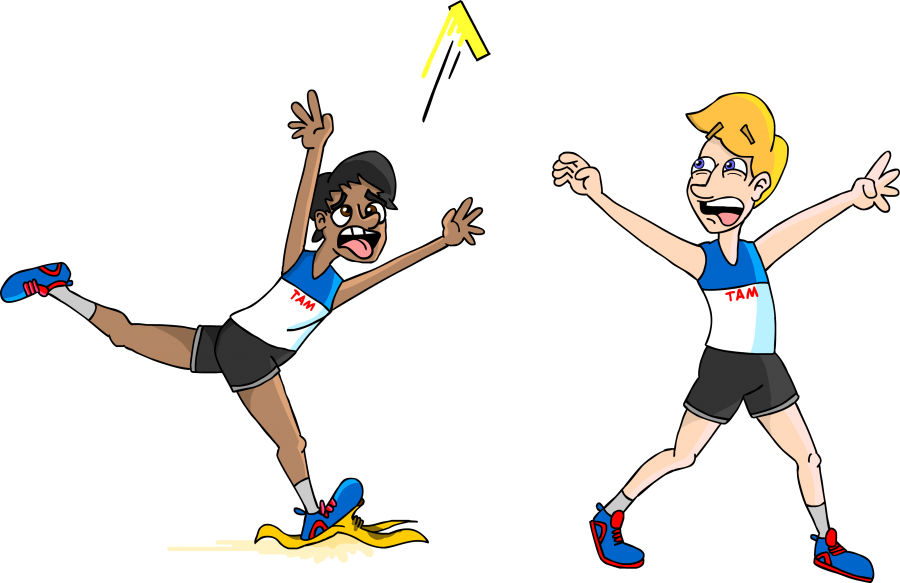In sports, there are winners and losers, coaches and officials, spectators and people judging the spectators, but there is one group that is always overlooked. This group of blunderers does not bring the team success, in fact, most of the time they bring the team loss, shame, and even murder.
People who belong to this group do not wish to be. Commonly known as choke artists, the anti-clutch, they are the athletes that make mistakes. Mistakes that have made them failures and cause their teams to lose games.
These people must live with their mistakes. All except for one lucky guy in Colombia. His mistake was accidentally scoring a goal for the opposing team, which knocked his country out of the 1994 World Cup. He doesn’t have to live with his error because he was shot six times and died.
I learned about this event, after I made a terrible mistake in a track event. It really made me suspicious of my teammates and a plan they had devised called, “Squash the Barry.” For now, however, let’s take a journey to a time when that Colombian soccer player was still alive, and there was only one version of “Full House.”
In 1994, everyone’s hair was as big as their computers, and the O.J. Trial was in full swing. During it all, unbeknownst to many Americans, the World Cup was happening. However, in Colombia not only did they know the World Cup was underway, many Colombians passionately believed their team would come out victorious.
Sadly, this is not what happened. Colombian defender Andrés Escobar (no relation to the drug lord Pablo Escobar) gave the other team a goal by deflecting one of their passes into his own net. Colombia ended up losing 2-1, and many Colombians blamed Escobar for the loss. The Colombian people’s anger towards Escobar reached such a tremendous peak that he was shot and killed on July 1, 1994.
Its probably not a coincidence that Escobar’s infamous own goal occurred on June 22, three days after the end of spring, the same season as track. And guess what happened during the track season? My painfully unforgettable sports error.
I recently learned that when running in a relay race, the most important aspect of it is not dropping the baton (the stick thingy you carry around with you). Of course, the first time I ran in a hundred meter relay, I dropped it. Probably like Escobar, I don’t know how it happened. The baton hit the track during the hand-off between me and the person passing the baton along. One second it was in my hand and the next it was on the ground. By the time the baton hit the track, I was about three steps in front of it. I ran back, picked it up, and sprinted to catch up to the other runners. We ended up losing that relay, and like Escobar, the fault fell on me, and I must live with that.
Every day, I wake up and look at myself in the mirror for two solid hours (I just get lost in my own eyes), and I always think to myself, “Why did I drop that baton?” My teammates on the relay team did chastise me for my error, but it never came from a place of judgement. Nothing will ever make up for the guilt I feel for dropping that baton (nor the million dollars I now owe the person I bet I wouldn’t drop the baton).
What is the lesson in all of this? Is it don’t drop the baton? Don’t run in relays? Don’t mess with Colombia’s chances of winning the World Cup? Is it that if your last name is Escobar, everyone will believe that you are related to the drug dealer? Or is it that we should all just take a chill pill before someone else gets murdered?
Athletes should not get killed for the little mistakes they make. They should get yelled at by overweight men in face paint. Their errors do not define who they are and what they are capable of as athletes. I have so many things to live for, such as not dropping the baton again.


